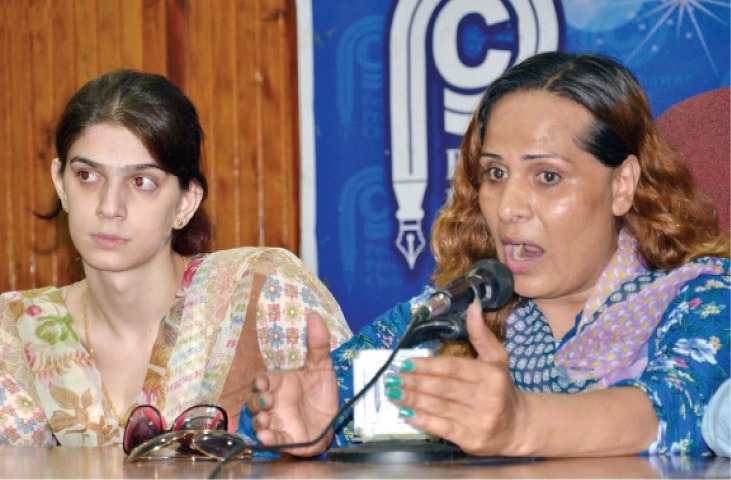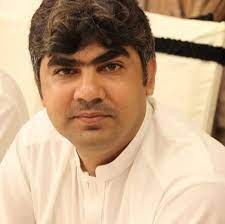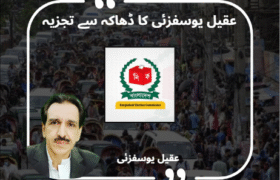The bustling streets outside Iqbal Plaza on Dalazak Road in Peshawar, Khyber Pakhtunkhwa, unveil a daily spectacle that mirrors the resilience and challenges of the transgender community in Pakistan. This lively scene, where transgender individuals beckon onlookers amidst the routine carnival, serves as a vivid snapshot of the life led by individuals like Gulal, a transgender living in Peshawar. As we delve into the intricacies of transgender existence in Khyber Pakhtunkhwa (KP), a narrative unfolds, pointing towards the urgent need for inclusive policies in the political realm.
Gulal’s life, defined by economic hardships and societal marginalization, exemplifies the struggles faced by many transgender individuals in Pakistan. Poverty often confines them to their traditional income sources like sex work or wedding dances, perpetuating a cycle of limited opportunities. Gulal’s disinterest in politics, echoed by her laughter when asked about upcoming elections, underscores a broader issue within the transgender community – a lack of awareness and a sense of exclusion from the political discourse.
The 2017 Population and Housing Census in Pakistan highlighted the significant transgender population of 21,774, with 55.12% in urban areas and 44.88% in rural regions. In KP, where Gulal resides, nearly 2,000 transgender individuals face societal challenges due to a lack of National Identity Cards (NICs). This absence translates into denial of crucial government facilities, including healthcare, licenses, and the right to vote.
Farzana Jan, president of the TransAction Alliance in KP, emphasizes that the absence of NICs poses a substantial barrier for transgender individuals in participating in the electoral  process. The recent policy changes and a ruling by the Federal Sharia Court compound their struggle, limiting their ability to exercise electoral rights. Jan highlights the pervasive lack of awareness among election officials and policymakers about the rights and needs of the transgender community, emphasizing the need for a harassment-free environment at polling stations.
process. The recent policy changes and a ruling by the Federal Sharia Court compound their struggle, limiting their ability to exercise electoral rights. Jan highlights the pervasive lack of awareness among election officials and policymakers about the rights and needs of the transgender community, emphasizing the need for a harassment-free environment at polling stations.
While efforts have been made to simplify the NIC registration process, numerous hurdles persist for transgenders to enter into politics. Many, like Gulal, face rejection and even death threats from their families, compelling them to seek refuge in safer spaces. The societal non-acceptance further deepens the challenges, creating an environment where transgender individuals are treated as less than human.
Taimur Kamal, a transgender rights activist, highlights the incongruity within the 2017 Election Commission Act, which grants transgender individuals the right to vote but still registers  them with their original gender. The absence of transgender individuals in political parties and the lack of specific quotas for their representation further hinder their political involvement.
them with their original gender. The absence of transgender individuals in political parties and the lack of specific quotas for their representation further hinder their political involvement.
Amidst the myriad challenges, a glimmer of progress emerges with Sobia Khan’s candidacy for the provincial assembly seat from constituency PK-81. Running as an independent  candidate, Sobia embodies the determination to be an advocate for transgender rights, challenging societal perceptions that undermine their potential contributions.
candidate, Sobia embodies the determination to be an advocate for transgender rights, challenging societal perceptions that undermine their potential contributions.
Her campaign strategy, featuring extensive door-to-door outreach, aims to garner support not only from men but also from women in the area. Sobia, holding a Bachelor’s degree and the distinction of being the first transgender radio jockey in the province, aspires to champion the rights of the transgender community, women, and children if elected.
While Sobia Khan’s candidacy signals progress, substantial challenges persist. The Election Commission of Pakistan’s (ECP) Gender Mainstreaming and Social Inclusion Framework (GMSIF) is a step in the right direction, addressing issues related to voter registration, casting votes, and providing facilities for transgender individuals. However, sustained efforts are required to overcome societal biases and create a conducive environment for political participation.
In conclusion, the journey of Gulal and the strides made by Sobia Khan underscore the urgent need for inclusive policies and societal awareness in KP politics. As Pakistan moves forward, embracing diversity and ensuring the political participation of all communities must be at the forefront of collective efforts. The time is now to transform exclusion into inclusion, silence into advocacy, and barriers into pathways for transgender empowerment in the political arena.



